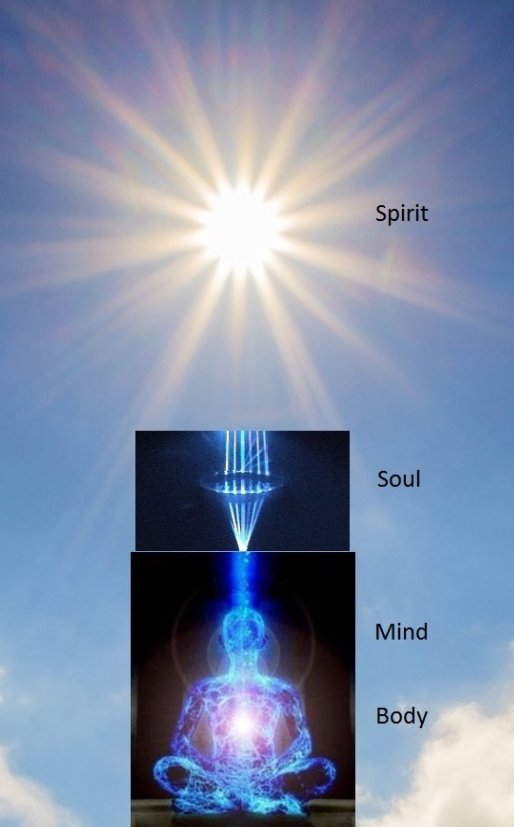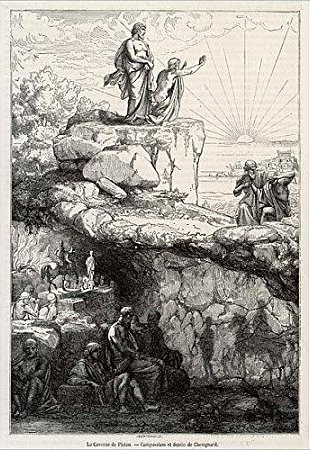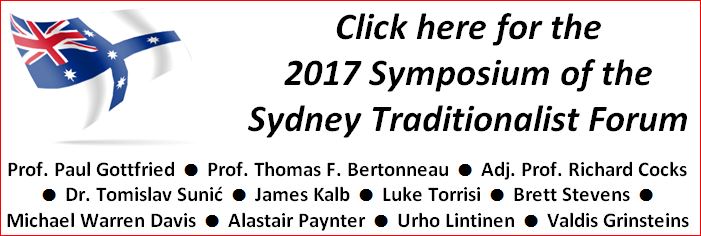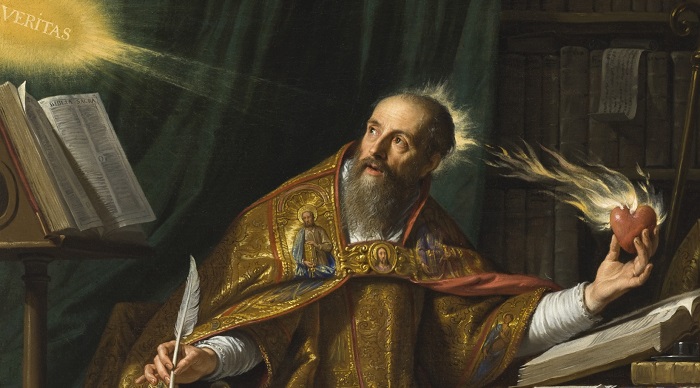Philosophy and The Crisis of the Modern World
To find a way out of the current confusions and rifts in modern Western societies, and for its various countries to regain workable cultural identities, a necessary, but not sufficient condition would be to have an allegiance to a divine conception of reality. This allegiance is not sufficient because cultures need to foster traditions and modes of living peculiar to them. Traditions stem from trial and error and will reflect the character of the people and the physical and man-made environment out of which they arise. These ethnic and cultural differences give rise to the cultural diversity liberals claim so much to love. However, modern liberalism is instead dedicated to stifling and eradicating differences and to thrusting often incompatible cultures together. Their modes of living and approaches to life may or may not be congenial.
Some liberal commentators can be found pointing out the difficulty that, for instance, the Irish and the Italians had initially in getting along in nineteenth century America, but how after much strife, they learned to live together. Two things should be noted here; one is that this conflict occurred between traditionally Catholic and European cultures. Imagine how much more difficult it would have been if they were more distantly related. Another is that putting even these two cultures together caused conflict and that the conflict was resolved by establishing a new culture that incorporated both in a common culture. This is not an argument in favor of multiculturalism. But to question multiculturalism at this point in time is to be regarded as “far right;” and thus as an extremist.

René Girard
The multicultural ideal person seems to be the rootless cosmopolitan, as happy in New York City as in London, Paris or Berlin, with no firm attachments to anywhere in particular. René Girard points out in The One By Whom Scandal Comes1 that anyone who does not evince a particular preference and loyalty to his own family, his own culture, has historically been deemed a threat to the continued existence of that family, that culture. If a person is as fond of another culture as his own then there is nothing to stop his abandonment of that culture in a time of crisis or any other; nor does he have a reason to work towards cultural self-preservation. In fact, the uniquely Western and liberal phenomenon of “ethnomasochism” takes the point of view of those with a grievance against the West, sometimes justified, and ignores the virtues that any culture is bound to have. Why preserve a culture if it is evil?
Liberalism is the dominant ideology of the mainstream media, academia and the ruling elite of perhaps all Western cultures. It has its roots at least partly in the Enlightenment. The Enlightenment period tended to reject tradition and intuition as meaningful modes of interacting with reality. It emphasized human reason as the means to progress and progress was to be achieved by an overweening rationalism and a suspicion and rejection of both the prerational; tradition, and the suprarational; the religious. Liberal theists do exist, but they are typically despised by their fellow liberals as retrograde and backward. Theism is fundamentally incompatible with the exclusively science-embracing perspective of the ideology of liberalism.
Ideas have consequences. Arguably, a precondition of having a workable, functioning and non-nihilistic culture rooted in a particular time and place, incorporating “a people” with some functioning identity, room must be found for the transcendent. No culture has ever been created without religious roots. Logically, this could be a historical accident. Or, more likely, it is because a conception of a divine aspect of reality is necessary to avoid nihilism.
In The Crisis of the Modern World, originally published in 1927, René Guenon blames the emergence of philosophy among the Greeks for all that has gone wrong in the Western world. To a devotee of philosophy, particularly Platonic philosophy, this is a rather alarming assertion.
Guenon notes that philosophy is the love of wisdom. As such it is “a preliminary and preparatory stage, a step as it were in the direction of wisdom.” It is not wisdom itself. “The perversion that ensued consisted in taking this transitional stage for an end in itself and in seeking to substitute ‘philosophy’ for wisdom, a process which implied forgetting or ignoring the true nature of the latter.”3

René Guenon
Guenon’s objection is not to philosophy per se, but to a philosophy denuded of esoteric content. At the heart of Plato’s philosophy is the Form of the Good – God, the Source. The Form of the Good is clearly the object of mystical revelation and it gives all reality a divine quality. Thus, reality is being generated by God and it shares in God’s divine nature. Wisdom must be grounded in reality. Rational philosophical reflection must be centered around the real.
If the divine is absented from philosophical speculation, then a vacuum is created. This vacuum can only be filled with malignant creations of the human imagination. They will be malignant because false and misleading – “a pretended wisdom that [is] purely human and therefore entirely of the rational order.” Reality is “true, traditional, supra-rational.”
Another and popular alternative is to take a fragment of the true Good and to represent it as the whole. A single virtue, like compassion, agape, becomes an evil monstrosity by shoving out of view all other excellences. Compassion is acceptance, but true love includes Eros, the push to develop, to gain wisdom, to seek salvation. For that, effort is required. If agape is lacking eros, compassion is lost because truly caring for someone and wishing that person the best means to care about his development. In The Abolition of Man, 4 C. S. Lewis reserves the word “ideology” for the practice of taking a fragment of the Tao and enlarging it in this way, to the exclusion of all other considerations. Hence, communism is an ideology but the Christian religion is not. Liberal opponents of this view tend to try to apply the label “ideology” to religion but in doing this, they miss the point. They want to claim that religion is an ideology like any other.
The advantage of the fragment enlarging technique for the ideologue is that he appears to have a hold of the truth. However, a partial truth becomes a big lie in this context.
Plato, on the other hand, is no ideologue. He examines the role of different aspects of the Good in different dialogs. His devotion is to The Form of the Good and this Form is supra-rational and not something that can be fully explicated rationally. It is not the product of mind and rationality. In fact, it produces the lower levels of mind, soul and body. Using the Neo-Platonist Plotinus’ nomenclature, of mind/psyche, soul/nous, spirit/the One, then a visual representation might look something like Plate 1.
Plato never doubts The Form of the Good, but he sometimes wonders about his ability to write sensibly and well about it. He is aware of the limitations of discourse and never considers it a substitute for mystical experience. Hence, he narrates a story, a “myth,” like the Timaeus, and in contexts like that he sometimes writes “something like this must be true.” Plato also appears to worry in the Meno that virtue may be unteachable and not fully definable. The character of Socrates suggests that it is better to try to do so, than to give up. In being self-aware about the distance between exoteric and the esoteric, Plato’s philosophy has the quality of a parable in the manner of Jesus, Christ’s way of communicating with the uninitiated.

(Plate 1)
Thus, the core of Plato’s philosophy is a religious experience. He worries that in writing about it he may misrepresent it and makes the reader aware of his misgivings and the approximate and provisional nature of all attempts to describe and explicate this religious core. This means all Plato’s writings, like all good philosophy, are theology. Platonic exoteric philosophy forever circles round the supra-rational. The Phaedrus and the Symposium have a quality of glorifying the divine and are also inspirational.
Plato’s Allegory of the Cave is a useful starting point for all attempts to understand Platonic philosophy (See: Plate 2). Everything Plato writes presupposes such a vision of reality. Plato has a place for rationality, but he at no point tries to deduce morality from merely rational considerations. The love of goodness and justness that is visible in the character of Socrates in The Gorgias is of a piece with Plato’s raptures expressed in describing the experience of the Form of the Good in Book VII of The Republic. The moral faith and beauty of Socrates in this dialog is inspiring, in stark contrast with the evil and self-serving nature of Gorgias, Polus and Callicles; with each interlocutor becoming progressively more brazenly horrible. In dialogs like this one, Socrates becomes a vehicle for the Form of the Good and the divine light shines through him, making him the most admirable of men for Plato.
Real philosophy is the explication of the supra-rational. What is the goal of life, having been projected into a physical universe by an ineffable Source? Socrates the man wanted to forget about the origins of the universe and focus on ethics. However, Plato saw that ethics without an appreciation of the divine origins of life is meaningless and a hopeless task. God is the alpha and the omega; the origin and destination. Rationalism, on the other hand, loses its way.
Stoic and Epicurean philosophy represent the beginning of the rot. Guenon notes that “the appearance of skepticism on the one hand, and of Stoic and Epicurean moralism on the other, are sufficient to show to what point intellectuality had declined.”5 They share some of the ethical insights of Platonic philosophy but jettison God. The point and purpose of human life is largely lost. They are like a too thin papier mâché shell constructed over a balloon. The balloon bursts and the shell remains temporarily intact before collapsing without the inner core that made it possible.
Once the supra-rational is abandoned and rejected there is nothing to philosophize about. God, as the First Cause, itself a logical necessity, may be able to create ex nihilo but philosophers cannot. Rational thought is not creative; it is analytic. William Blake wrote “Man by his reasoning power can only compare and judge of what he has already perceived.”6 The rationalist philosopher seeks to establish by theory that which only exists in experience and faith.
Exoteric philosophy abandons esoteric mysteries and insights and tries to conjure the world from the intellect of the philosopher. The rational philosophical mind spins its wheels on nothing; it grinds thin air trying to make bread and substance. It finds its task hopeless and despairs; the despair of skepticism and nihilism. Positivism, nihilism. Post-modernism, nihilism. Diversity, nihilism. Liberalism, nihilism. Humanism, nihilism. Every door closes, shutting itself in the face of the increasingly desperate or perhaps apathetic searcher.

C. S. Lewis
Roger Scruton shares Iris Murdoch’s view that a thorough going and straight-forward belief in God is now impossible. Murdoch thinks it is a pity and so does Scruton. Scruton looks to art and music to provide a kind of God substitute. In his book on beauty, Scruton rejects the notion that the experience of beauty is a view of the face of God; where the divine light shines through.
By contrast, the religious mystic and Platonist, Plotinus asks the fascinating question – why do we like beautiful things? What attracts us, calls us, lures us, and fills us with joy about beautiful objects? The answer is not obvious. Like Plato, Plotinus recognizes that beauties of character, noble conduct, experience of the supra-rational far outshine mere physical beauty.
Plotinus writes that soul recognizes a kinship to the beautiful and this attracts it. Soul is a divine thing and a fragment of Primal Beauty. The Good is desired by every soul and is beautiful. “Each in the solitude of himself shall behold that solitary-dwelling the pure, unmingled, for which all live, act and know, all things depend, the Source of life, intellection, being.” The Beauty supreme, fashions its lovers to beauty and makes them also worthy of love. The Fatherland to us is There whence we have come, and There is The Father. Withdraw into your soul and look and if you do not find yourself beautiful yet, act as the creator of a sculptor does and keep chiseling until “god-like splendor of virtue shines forth.” The more beautiful the soul is, the clearer its vision of First Beauty. Beauty in the realm of ideas constitutes the beauty of the intellectual sphere. The Good lies beyond that and is the Fountain and Principle of Beauty. Thus, Plotinus’ writings about beauty are themselves beautiful.
Scruton writes scathingly about theology. He compares it to academic feminists; taking the line that to prescribe conclusions is to forgo research. For instance, feminists set out to explain, catalog and remedy the “oppression of women,” never doubting for a second that this oppression is taking place. In fact, it is impermissible to question this supposed truth.
The appropriate rejoinder to this criticism would seem to be that the problem with feminism is that it is wrong and misguided. But is this what should be said about Plato’s theology? Since Plato’s theology centers around a mystical experience, it is not something that can be considered to be the end product of a chain of reasoning, or the conclusion of an argument. The Form of the Good is not the result of speculative philosophy – it is what makes meaningful speculative philosophy possible.

Roger Scruton
Similarly, if the existence of the world is thought to be the end product of philosophical speculation, the ontological order has been reversed. The world exists. The world gives rise to humans. Humans then wonder about this world. Humans did not first exist and bring about the existence of the world by conjecture. Our inability to conjecture the world, God, goodness and beauty into existence is not a sign of philosophical corruption or bad faith.
Scruton has assumed a vacuum where there should be a God. This starting assumption is not more legitimate than the theologian’s. The intuition and experience of God’s existence did not come from philosophical argument. If Scruton is incapable of religious experience, he can rely on faith and hope like the rest of us. He clearly exhibits these two things and yet he still rejects theology.
Theology does not mean the end of philosophical thinking. It is the only form of philosophical thinking that does not ultimately end in or imply nihilism. In the end can be found the beginning and in the beginning, the end. All happy families are alike; each unhappy family is unhappy in its own way, writes Tolstoy in Anna Karenina. Yet philosophies without God are only superficially different. If a philosophy starts with nothing, it will end with nothing. God is the Alpha and the Omega or Nothing is the beginning and the end. Of course, much of what is officially called theology is atheistic and unenlightening.
Tibetan monks spend half the day meditating – purifying the soul to make itself at home in the Beauty and Goodness from whence it came; aligning the soul with reality – and the other half disputing with the other monks as to the meaning of what they have experienced. Having agreed that God exists, it is still necessary to discover how to live and how to integrate religious experience into everyday life. Philosophy does not end when it becomes properly theological.
In “The Sacred and the Secular”,7 Scruton takes Feuerbach’s view that God is a projection of human qualities onto a nonexistent divine. Talk of God is strictly metaphorical. It is of a piece with myth which is really about the human condition; not about God at all. Scruton writes approvingly of nineteenth century writers who “had rejected various metaphysical ideas and doctrines, but still inhabited the world that faith had made – the world of secure commitments, of marriage and love, of obsequies and Christenings, of real presences in ordinary lives and exalted visions in art.” However, without the metaphysical underpinnings, nothing can sustain those remnants of faith, as can be observed in the modern world around us. By replacing God’s love with a purely human love, human love loses its aspirational character. Instead of divine love shining through Socrates’ goodness, humans are to be the source of that love. Is our task to get out of the way of the divine transmission of love or to be its creators? The first is to properly orient ourselves in relation to reality. The second is to assume the role of God; not being a vehicle but the Source.

(Plate 2)
There is a reason that once a notion of the transcendent is lost, human life becomes more or less unbearable. As Scruton notes, often various “causes” are adopted, like PETA, that have an emotionally functional equivalence to religious devotion. Humans abhor meaninglessness and all sorts of pathologies are promoted in the absence of the divine.
Rejecting religious experience, many modern philosophers are materialists and embrace scientism. Denying the existence of the invisible features of reality, and focusing on what can be quantified, E. F. Schumacher comments that such a person “lives in a very poor world, so poor that he will experience it as a meaningless wasteland unfit for human habitation. Equally, if he sees it as nothing but an accidental collocation of atoms, he must needs agree with Bertrand Russell that the only rational attitude is one of ‘unyielding despair.’”8
Schumacher points out that the idea of a Levels of Being is a recurrent conception in human cultures. He identifies them as mineral, plant, animal, human – correlated with the physical, life, consciousness and self-awareness. A low Level of Being means focusing on the body and biological needs while living at a higher level involves fulfilling human potential and a richer life.
The game of modern philosophy, involving the useless spinning wheels of the rationalistic philosopher, continues by violating one of Goedel’s assertions, namely that axiomatic systems can be consistent and incomplete, or inconsistent and complete, but never consistent and complete. This last would enable philosophers to self-generate the aboutness missing from their philosophy; unfortunately for them, it is a proven impossibility.
Analytic philosophers, post-moderns and all the others continue to “think” or at least write by opting for “inconsistent and complete.” This possibility is rejected by Goedel because the reason that an inconsistent axiomatic system can be complete is because contradictions, if taken to be true, can be used to prove anything. This “anything” includes false things. Truly rational human beings do not want to be able to prove that false things are true.
Perhaps this fact is yet another reason why many analytic philosophers can abide the contradictions of determinism, because they need contradictions in order for the utter vacuousness of their theories to remain hidden. They want skepticism about almost everything except the existence of physical reality, although their philosophy makes no such thing possible, and then make desultory attempts to generate things like morality from it even though justice is an abstract concept, the reality of which cannot be derived from the physical level. In trying to derive morality from biology, for instance, it is possible to show that morality is useful, but not that it is true.

Plato
The things that we really care about and that make life worth living are invisible: love, friendship, nonphysical beauty, meaning, purpose, morality, fun, joy and value. Relying on a scientific approach means focusing on externals, surfaces, the superficial. If the human race were to encounter aliens, there would be some minor interest in the aliens’ height, weight, appearance, etc., but the real interest would be their thoughts and dreams. Conversation with them, reading their literature, listening to their music and discovering their spiritual ideas would be of most importance. It would be supremely disappointing if an investigator returned from his encounter with aliens having forgotten to include any of these factors in his inquiries. The inquirer could be assessed as incompetent and perhaps even mentally challenged. The same holds of course for all similar inquiries into the human condition.
Roger Scruton argues that “science can have all the answers only if it has all the questions: and that assumption is false.”9 Schumacher identifies some of the missing questions and notes the effect of ignoring them. These include inquiring about the meaning and purpose of human life and the nature of good and evil. A culture that stops asking these questions is unsustainable – “man cannot live by bread alone.”
The character Sergey Ivanovitch in Anna Karenina notes that classical learning can counter the nihilistic tendencies inherent in an exclusive focus on science; “little pills of classical learning possess the medicinal property of anti-nihilism.”10 A classical education could have this effect partly because, as Guenon points out, things had not at that point descended to the current extremes. Mystery cults and esoteric philosophy still exerted an influence on exoteric thought.
Schumacher notes that those of us who still see the value of a science of understanding nonetheless are affected by the hypnotic pull of the exclusively scientific view. After all, for most Western people, this view underpinned nearly all of their formal education. The power of social conformism draws people in like a black hole in the center of what was once a living culture. Faith, instead of being a guide to understanding higher levels, is seen as being in opposition to the intellect. Since science excludes anything “higher” than itself, it can give the appearance of confirming that there are no such higher levels. At worst a person “may lose the courage as well as the inclination to consult the ‘wisdom tradition of mankind’ and to profit from it.”11

Viktor Mikhaylovich Vasnetsov, A Girl Picking Flowers.
Science has garnered a near-total monopoly on prestige. The science of manipulation offers to solve our problems. It is imagined that a technological fix can be found for the problems that confront us. However, many societal problems are grounded in morality, culture and an impoverished idea of the purpose of human existence. Wealth may accumulate as the quality of life declines.
The science of manipulation has a pragmatic quality. Pursuing a degree in English or philosophy tends to elicit the question “what are you going to do with that?” It would be nice if the answer were to preserve our wisdom traditions and to appreciate and transmit our grand cultural inheritance. However, for most philosophers, “wisdom” is regarded as a defunct and outdated concept and English tends to center around “gender, class and race” and thus to be a feeble arm of a lost and misguided politics – Scruton’s “culture of repudiation” among other things. In this way, English tries to demonstrate its “usefulness,” but it does so by gutting itself of content and an appreciation of high art and replacing it with the pursuit of “equality.”
If all the “smart” people abandon the spiritual quest; if they do not develop their abilities towards the science of understanding, evidence of wisdom will increasingly only exist in the past.
There is plenty of evidence that the ability to think coherently and constructively about invisibles is diminishing. The confusion surrounding moral values is astounding. Society has gone from the equality of opportunity to the equality of result. It does no good to point out the incoherence of legislating results. Failure is taken to be synonymous with oppression and with oppression there logically needs to be an oppressor. This leads to the lynch-mob mentality of, for instance, post-colonial studies. Only criticism, but never praise, of the oppressing culture is countenanced. The failure of many former colonies to emulate the success of the colonizers is attributed to their past oppression. The fallacy is to imagine that without, say, French atrocities in the Congo, the Congo would now be a thriving, developed, economically sound, well-educated, peaceful, relatively corruption-free society. Their legal system would rival the best in the world. Their education system would be second-to-none. The fact that many countries that have never been colonized have failed to thrive in this manner is ignored.
It is possible to try to make so-called transcendental arguments. These start with the experience of, for instance, freedom, and try to outline the metaphysical realities that make freedom possible. Transcendental arguments show how the exoteric relies on the esoteric. But to do so, they rely on the full reality of ordinary experience. Positivists and the like, simply deny this reality. The rejection of esoteric realities ends up with the rejection of exoteric realities, until, in the philosophy of John Locke and Galileo, ordinary subjective experience is banished from reality. Only the measurable and quantifiable are held to exist.
Conclusion

Daniel F. Gerhartz, The Garden Window
In The Brothers Karamazov, Dostoevsky bravely and interestingly does not directly answer the philosophical arguments of The Grand Inquisitor made in Ivan’s allegory. Instead, the allegory is immediately followed by a conversion story. Father Zossima’s brother Markel is the recipient of mystical insight; an esoteric revelation. Markel had been under the influence of a militant politicized atheist and made fun of things religious. However, as Markel learns he is dying at the age of seventeen, he comes to have sympathy for his mother and his old nurse. He makes concessions to their religiosity and in doing so begins a process of transformation which has much to do with his newfound empathy which is partly inspired by their overt sorrow.
Markel’s insights flummox his relatives and his doctor who declares the disease Markel is suffering from has literally gone to his head. It seems to be partly that in coming close to death, the beauty and goodness of life becomes apparent. Markel tells his mother not to cry; “life is paradise, and we are all in paradise, but we won’t see it; if we would, we should have heaven on earth the next day.”12 He declares that the fact he is soon going to die is irrelevant in this regard. One day is enough to know all happiness. We quarrel, compete and keep grudges, when we should go “straight into the garden, walk and play there, love, appreciate, and kiss each other, and glorify life.” Markel even asks forgiveness from the birds because “there was such a glory of God all about me: birds, trees, meadows, sky; only I lived in shame and dishonored it all and did not notice the beauty and glory.”
Some intuitive appreciation of such suprarationally inspired notions is possible – arguably in the form of Plato’s anamnesis – an awakening of what the soul already knows, without undergoing Markel’s spiritual transformation. The beauty of photographs, paintings, music and poetry is often undeniable and presents a refutation to the notion that the science of manipulation spans the gamut of existence. Positivism is like coming to the entrance of an intriguing and beautiful home, but never knocking and entering. Beautiful pictures of people reading, among others, also point to the inner dimension of life that opens, ultimately, onto God.
 – Adj. Prof. Richard Cocks teaches philosophy at SUNY Oswego. Originally from Christchurch, New Zealand, he is presently based in the United States. Dr. Cocks is an editor and regular contributor at the Orthosphere and has been published at The Brussels Journal, People of Shambhala, The John William Pope Center for Higher Educational Policy and the University Bookman.
– Adj. Prof. Richard Cocks teaches philosophy at SUNY Oswego. Originally from Christchurch, New Zealand, he is presently based in the United States. Dr. Cocks is an editor and regular contributor at the Orthosphere and has been published at The Brussels Journal, People of Shambhala, The John William Pope Center for Higher Educational Policy and the University Bookman.
Endnotes:
- René Girard, The One By Whom Scandal Comes (Michigan State University Press, 2014).
- René Guenon, The Crisis of the Modern World (Sophia Perennis, 2001 [1927]).
- Ibid. p. 13.
- C. S. Lewis, The Abolition of Man (Oxford University Press, 1943).
- René Guenon, op. cit., p. 14
- Colin Wilson, Beyond the Outsider (Houghton Mifflin, 1965) p. 93.
- Roger Scruton, Panel Discussion, “The Sacred and the Secular” (McGill University, 13 April 2014).
- E. F. Schumacher, A Guide for the Perplexed (Harper Perennial, 1977) p. 35.
- Mark Dooley and Roger Scruton, Conversations with Roger Scruton (Bloomsbury Continuum, 2016) p. 156.
- See: Pt. IV Chp. X.
- E. F. Schumacher, op. cit. p. 56.
- Fyodor Dostoyevsky, The Brothers Karamazov (Penguin Classics, 2003 [1880]) p. 374.
Citation Style:
This article is to be cited according to the following convention:
Richard Cocks, “Philosophy and the Crisis of the Modern World” SydneyTrads – Weblog of the Sydney Traditionalist Forum (11 February 2017) <sydneytrads.com/2017/02/11/2017-symposium-richard-cocks/> (accessed [date]).






Leave a comment